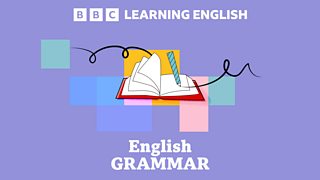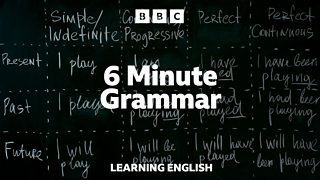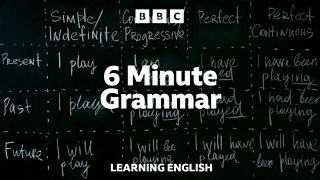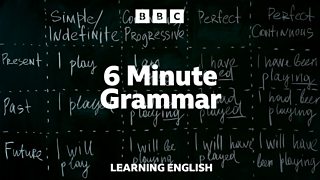Learning English Grammar Episodes Available now

Indirect questions
Learn different ways of asking for information and making requests.

Tenses
Listen to Neil and Catherine discussing how to use six different English tenses.

Too, very, enough
Too expensive? Using 'too', 'very' and 'enough' with adjectives to talk about degree.

Subject questions
Learn how to form questions when you want to ask about a subject or an object.

Used to and would
Learn to talk about this you did as habits in the past.

Will, going to, might
Finn and Catherine talk about the future.

Question tags
"You didn't eat all the chocolate, did you?" Learn how to use 'did you' - a question tag.

Present perfect and past simple
We talk about unusual food and give you rules to help you choose tenses.

State verbs
Learn about verbs we don't usually use in continuous tenses.

The second conditional
We talk about unreal or imaginary situations using the second conditional.
